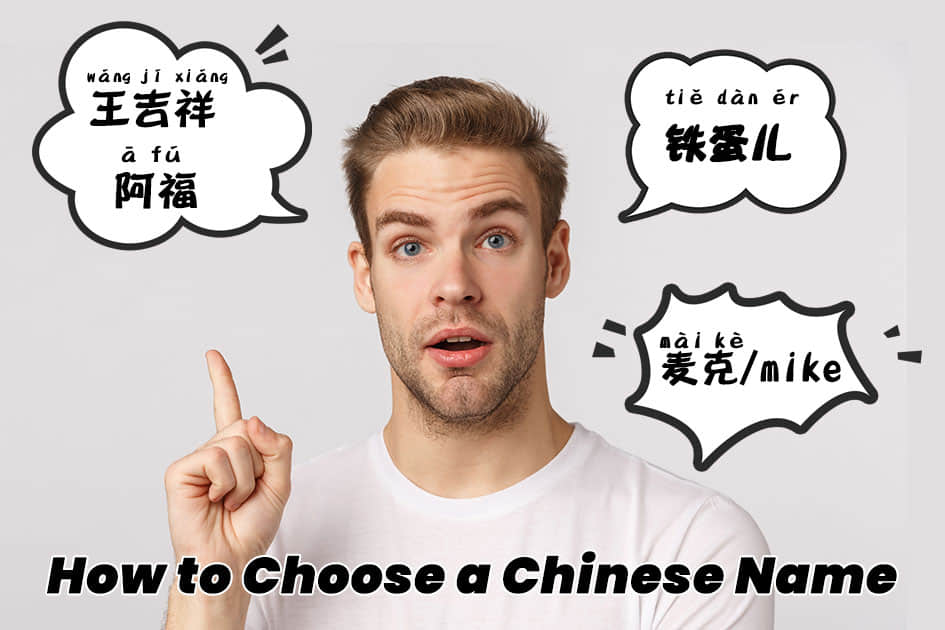
For names, some like Shakespeare’s Juliet believes “A rose by any other name would smell as sweet”. But Chinese believe that a name goes beyond identifying a person. It is a label that will be associated with and even define a person.
Most parents choose names based on the following principles: meaning, special significance, family connection, and/or sound. Chinese parents also consider these things when naming their baby boy or girl. But on top of that, Chinese parents have to consider the Chinese characters that make up the name.
It is not uncommon for an adult to change his or her name in the hope of good fortune or better health.
No matter if you want to adopt a Chinese name or not, I hope this article will help you to learn more about the Chinese name culture in China.
Table of Contents
- Introduction of Chinese Name
- How do Chinese people name their kids?
- Are there any taboos for Chinese names?
- The most popular surnames in China
- The top 5 names in China
- Top Chinese names for male
- Beautiful Chinese names for females
- Best Chinese names adopted by foreigners
- Free Online Chinese Name Generator
Introduction of Chinese Name
Like in most cultures, there are two parts for a Chinese name, the surname and given name, but unlike English, we put surname before the given name.
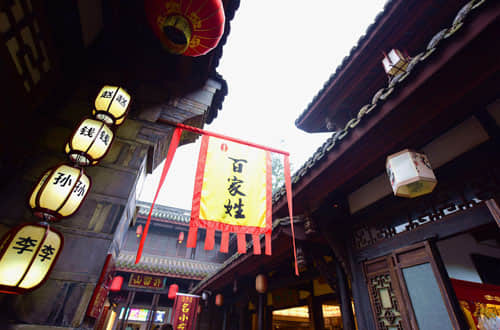
Traditionally, Chinese people have at least two names, the ming (given name), given by the parents or grandparents at the time of birth. Another name is called zi (courtesy name), given at the age of 20 for males and 15 for females. It is a symbol of adulthood and marriage for the female. It could be given either by the parents or by a teacher. One also may adopt a courtesy name by himself. It is polite to call other people by his or her courtesy name rather than the given name. But the courtesy name custom was abolished during the fall of the Qing dynasty in 1911 and is no longer done.
For a Chinese name, normally there are 2 to 6 characters, with the most common names having 2 or 3 characters. The family names are normally one character, but some family names may have two characters like Sima, Ouyang, and Shangguan. Traditionally, Chinese given names are structured by a two-character pattern. The first part is the generic name that is shared by all members of a generation, and the last character is given to the person. For example, Mao Zedong has two brothers: Mao Zemin and Mao Zetan. Ze is their generation name. The generation names are usually given by the forefathers, who chose them from a poem or found their own and put them in the genealogy for their descendants to use. For this reason, it is possible to know the relationships between the family relatives by just looking at their names.
Nowadays many young Chinese don’t have a generic name. The new trend is combining parents’ family names to create a new family name for their children. That’s why you can find many children with 4 characters in their name.
How do Chinese people name their kids?
For most Chinese, children’s names always include characters like beauty, hope, talent, or something similar. Parents put their wish for their kids in the name. Every name has its unique feature and special meaning.
Popular names often mirror the values of the era in which they were chosen. These days, besides naming traditions that have been passed down through generations, younger parents look to diverse sources for inspiration, from ancient literature to popular culture. Traditionally, ancient classic books like The Analects (论语) and The Shijing 诗经 or the "Book of Songs" are a great resource for Chinese names. International renowned mathematician Shing-Shen Chen (also spelled Chen Xingshen) adopted his name from The Analects. His name in Chinese is 陈省身 Chén Xǐng Shēn as in “吾日三省吾身:为人谋而不忠乎? 与朋友交而不信乎? 传不习乎?” "Every day I examine myself on three counts. In what I have undertaken on another's behalf, have I failed to do my best? In my dealings with my friends have I failed to be trustworthy in what I say? Have I passed on to others anything that I have not tried out myself?" (Translator: Din Cheuk Lau).
Many Chinese given names are to commemorate historical events. Boys born shortly after the People’s Republic of China was established in 1949 were often named 建国 (Jianguo), which means the founding of a nation. During the Korean War, many boys were named 援朝 (Yuanchao), or “assisting North Korea.” Boys born on the country’s National Day on Oct. 1 are often called 国庆 (Guoqing), the Chinese name for the celebration.
Some parents seek out fortune-tellers to help name their children. Taoists believe that depending on when someone was born, their body might lack one of the five elements — metal, wood, water, fire, or earth — which can affect their health. A fortune-teller can advise parents on how to select a name that corrects this deficiency, for example by using a character that incorporates one of the elements. Some will even offer counsel on how many strokes should be in each character of the child’s name.
Are there any taboos for Chinese names?
Unlike western culture, it is a big no for Chinese people to name their son or daughter using an ancestor’s name. Before 1911, we have a common practice called bihui (避讳) or name avoidance, the names of sovereigns, ancestors, parents, teachers, and even friends were all considered taboo, in other words, it was prohibited to speak them out loud or to record them in writing. Emperor Taizong of the Tang, his name Li Shimin (598-649 CE), the character “shi” was dropped in Guanshiyin, becoming Guanyin, widely known as the Goddess of Mercy. Whenever an emperor ascended the throne, there would be a wave of name changes across the empire, among those whose given names shared the same sacred characters as the new rulers. Various creative strategies were devised to avoid writing the characters that made up the emperor’s name, such as the number of strokes or using synonyms. The rules were applied throughout history; “name avoidance” caused a considerable amount of inconvenience to a lot of people. The custom fell out of use following the fall of the last imperial dynasty in 1911, but vestiges of it remain. While the names of modern-day presidents, premiers, and chief executives are no longer such a big deal, there are still many Chinese families who will not name their children using the characters found in the names of their parents, grandparents, or even uncles and aunts.
The most popular surnames in China
There are 5662 recorded surnames in China, but the top 10 most popular surnames accounted for 40% of the population, they are :
| Rank | Surname | Pinyin | Pronunciation | Population(million) | Percentage |
|---|---|---|---|---|---|
| 1 | 李 | Li | lee | 95.3 | 7.94% |
| 2 | 王 | Wang | w-ah-ng | 88.9 | 7.41% |
| 3 | 张 | Zhang | dr-ah-ng | 84.8 | 7.07% |
| 4 | 刘 | Liu | l-yo | 64.6 | 5.38% |
| 5 | 陈 | chee-en | Chen | 54.4 | 4.53% |
| 6 | 杨 | Yang | y-ah-ng/ Young | 37 | 3.08% |
| 7 | 赵 | Zhao | chao | 27.5 | 2.29% |
| 8 | 黄 | Huang | who-ah-ng | 26.8 | 2.23% |
| 9 | 周 | Zhou | chow | 25.4 | 2.21% |
| 10 | 吴 | Wu | woo | 24.6 | 2.05% |
Resource: 2010 Population Census of the People's Republic of China. Complied by Population Census Office under the State Council, Department of Population and Employment Statistics, National Bureau of Statistics.
The top 5 names in China
If your family name is among the 10 most popular family names, then you adopt a single character as your first name. There are chances that many may bear the same name. Please find the most popular names in China.
- No.1 张伟 Zhang Wei, 299,025 of Chinese males bear this name, almost the same size as the population of Iceland.
- No.2 王伟 Wang Wei, 290,619 of Chinese males bear this name
- No.3 王芳 Wang Fang, 277,293 of Chinese females bear this name
- No.4 李伟 Li Wei, 269,453 of Chinese males bear this name
- No.5 李娜 Li Na, 258,581 of Chinese females bear this name
Top Chinese names for male
We listed some of the most popular first names for males below. You can consider them when you adopt Chinese names.
- AN, 安 peace.
- BO, 波 waves.
- CHEN, 晨 the morning.
- DONG, 东 east, eastern, 冬 winter.
- FANG, 方 square, in the sense of correctness.
- FENG, 锋 the point of a weapon; 峰 peak.
- GANG, 刚 strong, good or 钢 steel.
- GUANG, 光 light, glory.
- HAI, 海 the sea.
- HONG, 鸿 wild goose; or 宏 great, vast.
- JIAN, 健 strong, healthy. 行健 xing jian is from I Ching (Book of Change).
- JIANG, 江 a river, especially the Yangtze River.
- JUNJIE, 俊杰 handsome hero.
- LIANG, 亮 clear, bright.
- LONG, 龙 dragon .
- PENG, 鹏 the roc, a fabulous bird. 鹏举 Peng ju or 鹏飞 Peng fei,flight of roc.
Beautiful Chinese names for females
Also some popular first names of females for your reference:
- CHEN, 晨 the morning.
- CHUNHUA, 春华 spring flowers.
- CUI, 翠 emerald.
- DAIYU, 黛玉 black jade. 林黛玉 Lin Daiyuis a main character in Dream of the Red Chamber.
- DAN, 丹 cinnabar, red.
- DONGMEI, 冬梅 winter plums.
- FANG, 芳 fragrant .
- HONG, 红 red (sign of good luck).
- HUAN, 欢 joy, satisfaction.
- HUI, 慧 clever.
- JIA, 佳 good, fine, auspicious.
- JIE, 洁 cleanliness.
- JIN, 晶 bright, clear, crystal.
- LAN, 兰 orchid.
- LING, 灵 clever, intelligent, spiritual.
- LIU, 柳 the willow.
- MEI, 梅 plum.
- MEILI, 美丽 beautiful and graceful.
- MEILIN, 梅林 plum grove.
Best Chinese names adopted by foreigners
We have listed some examples of Chinese names adopted by foreigners. They all have a good understanding of Chinese culture, most of them are sinologists.
- Bernhard Karlgren, Swedish sinologist, and linguist, his Chinese name is 高本汉 GāoBěnhàn, Benhan means “an origin of Han Chinese”. It shows his affection for Chinese culture. He learned more than 20 dialects of Chinese in China, outnumbering more understanding of the different dialects compared to most other Chinese.
- Kristofer Schipper, Dutch sinologist. His Chinese name 施舟人 Shī Zhōurén, His family name Schipper means skipper, so he adopted the Chinese name Zhouren which means “Captain of a small boat”. He wanted to be a boat that connected the eastern and western culture.
- John King Fairbank, American sinologist, the Fairbank Center for Chinese Studies at Harvard University is named after him. His Chinese name is 费正清 FèiZhèngqīng, Zhengqing means “integrity , honest, and upright”. It was said the name was given by Liang Sicheng, a distinguished Chinese architect and architectural historian.
- Nils Göran David Malmqvist, Swedish linguist, literary historian, sinologist and translator. His Chinese name is 马悦然 MǎYuèrán, Yueran means “happy”.
- Jonathan D. Spence,American historian, Sterling Professor of History at Yale University from 1993 to 2008, his Chinese name is 史景迁 ShǐJǐngqiān. Jingqian means “admirer of Sima Qian”. He is a great admirer of Sima Qian who was regarded as the father of Chinese historiography because of his highly praised work of Shiji ("History Record").
Free Online Chinese Name Generator
To adopt a Chinese name, the most reliable way is to ask a Chinese person to double- check it for you. If you want to find a name generator online, you can try the following two:
- They pick up names from Chinese classic books like the Book of Songs (诗经) and Chu Ci (楚辞): https://getrealchinesename.com/
- The generator shows you one Chinese name each time. If you want a different one, you can click the button ‘Get Another One’: https://www.yourchineseastrology.com/chinese-name/generator.htm

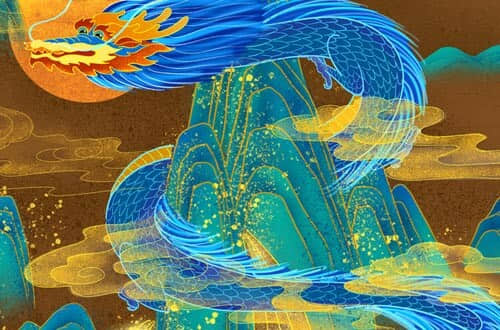 Dragon Worship in China
Dragon Worship in China 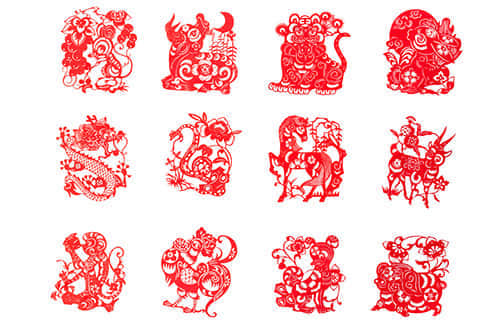 Chinese Zodiac
Chinese Zodiac  Chinese Kung Fu
Chinese Kung Fu 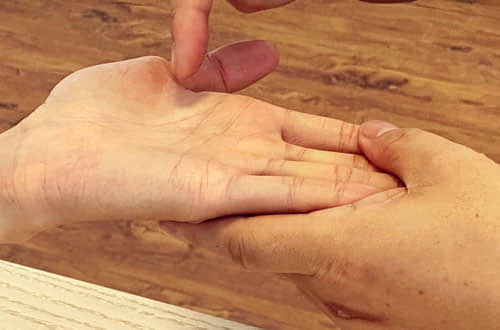 How Chinese Palmistry Works
How Chinese Palmistry Works